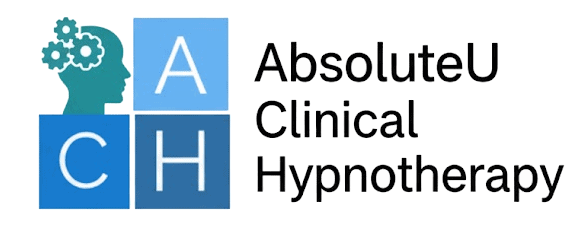Overcoming Exam Nerves with Hypnotherapy
Exam nerves can affect anyone, no matter their age or level of preparation. Whether you are sitting GCSEs, studying for professional qualifications, or taking a driving test, the pressure of being assessed can stir powerful emotions. Even confident people sometimes find that as soon as they are tested, the mind goes blank and the body tightens.
These feelings are normal. Exam nerves are not a sign of weakness, they show you care about the outcome. When worry takes over, tension rises and performance can drop. At AbsoluteU Clinical Hypnotherapy in Horsham, the focus is on transforming exam nerves into calm confidence so you can think clearly and do your best when it matters most.

Calm and clarity are skills that can be learned. With the right approach, exam nerves become manageable and even useful, providing focused energy instead of fear.
Recognising the Signs of Exam Nerves
Most people feel a few butterflies before a test, but when exam nerves grow stronger they can affect every part of your body and mind. Common symptoms include:
- Fear of failure
- A blank or blocked mind
- Feeling nauseous
- Rapid or shallow breathing
- Light headedness
- Difficulty sleeping or insomnia
- Loss of control or panic
- Trembling or shaking
These reactions are part of the natural fight or flight response. During an exam there is no physical danger, yet the body acts as if there is. The heart races, breathing speeds up, and muscles tense, which makes clear thinking harder. If exam nerves are not addressed they can start long before the day itself, sometimes weeks or months in advance.
Why Exam Nerves Happen
Exam nerves often begin in the subconscious mind. A past experience of freezing, harsh feedback, or strong pressure can link testing with fear or judgment. The next time a test appears, the subconscious recalls those feelings and triggers the same stress pattern. Thoughts such as “I am going to fail” or “I will forget everything” appear automatically, even when you have prepared well.
Over time the pattern strengthens through repetition. The more the mind practises worry, the more natural it feels. The aim is not to suppress nerves, but to retrain the response so that the body and mind move towards calm focus instead of panic.
The Role of Relaxation
Relaxation is the opposite of anxiety. When you are calm, breathing deepens, muscles loosen, and heart rate steadies. This state allows memory and concentration to work properly. Entering an exam in a relaxed condition means you can read questions clearly, think logically, and access the information you have studied.
Trying to force calm through willpower is rarely successful. The conscious mind struggles to override automatic reactions. Learning to relax at a deeper level gives you a reliable way to settle the body and steady the mind, so exam nerves do not take over.
How Hypnotherapy Helps with Exam Nerves
Hypnotherapy uses guided relaxation to bring the body into a peaceful state while keeping the mind focused. In this state the subconscious becomes more receptive to positive suggestions. You remain aware and in control, simply more settled and open to change.
During sessions you rehearse feeling calm and steady in testing situations. You imagine reading questions with clarity, breathing evenly, and recalling information with ease. As this is practised, the subconscious begins to associate exams with comfort rather than fear. Over time this new response becomes automatic, so exam nerves reduce and confidence rises.
Physical tension also eases. As the body relaxes, breathing slows, the heart rate steadies, and the stress response softens. With the body settled, the mind can think clearly and perform well.
Combining Hypnotherapy with Cognitive Techniques
Alongside hypnosis, sessions at AbsoluteU include simple cognitive methods inspired by Cognitive Behavioural Therapy. These help you manage thoughts and behaviours on a conscious level, while hypnotherapy changes the underlying emotional responses.
You learn to challenge unhelpful thoughts and replace them with balanced ones. For example, changing “I always panic” to “I can steady my breathing and focus.” You also practise short grounding routines and calm self talk for use before and during exams. Together, these tools create a complete system of support for exam nerves.
Practical Steps You Can Begin Now
- Controlled breathing– Breathe in through the nose for a count of two, then out through the mouth for a count of four. Repeat for one to two minutes to steady heart rate and relax muscles.
- Positive self talk– Replace “I cannot do this” with “I am prepared and capable.” The brain listens to what it hears most often.
- Visualisation– Spend a few minutes picturing yourself calm and focused in the exam room. See yourself reading clearly and writing with ease.
- Good study rhythm- Revise in short focused bursts with regular breaks. Keep hydrated, sleep well, and nourish your body.
- Gentle movement- A short walk, simple stretches, or yoga can release tension and clear the mind.
These habits reinforce the message that you are safe and in control. Practised little and often, they make it easier to access calm when exam nerves appear.
A Calmer, More Confident Way Forward
Exam nerves do not have to control performance or wellbeing. With the right tools and guidance, you can train your mind and body to respond with calm focus. Hypnotherapy helps turn fear into clarity and replaces anxiety with steady self belief. Many clients find that the skills they gain for exams also improve confidence in interviews, presentations, and other testing moments in life.
If you or your teenager is struggling with exam nerves, you are welcome to get in touch. Together we can create a plan that helps you feel calm, focused, and ready to succeed.

